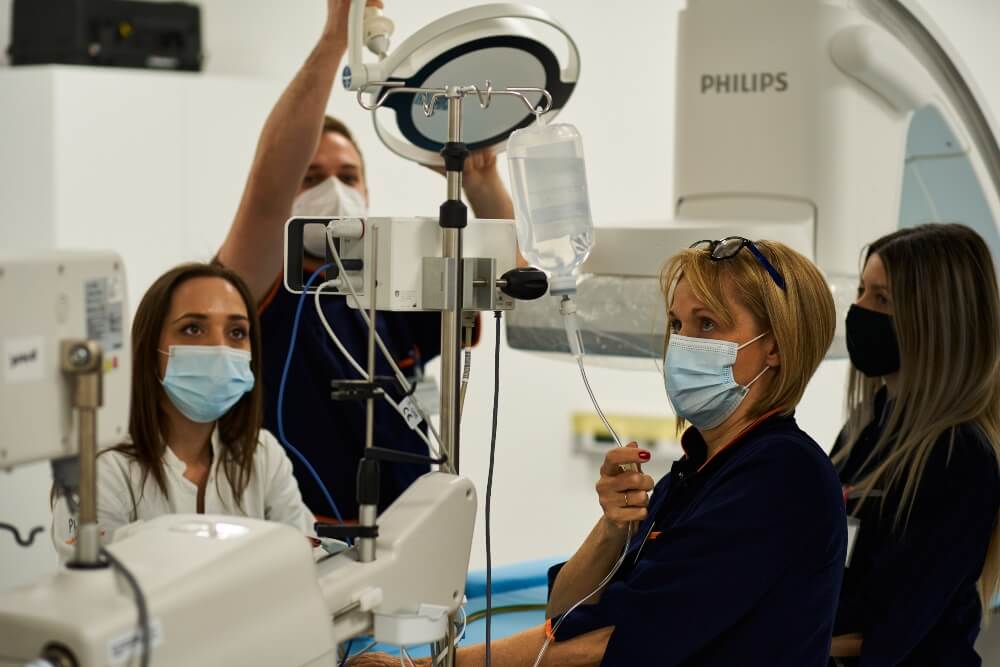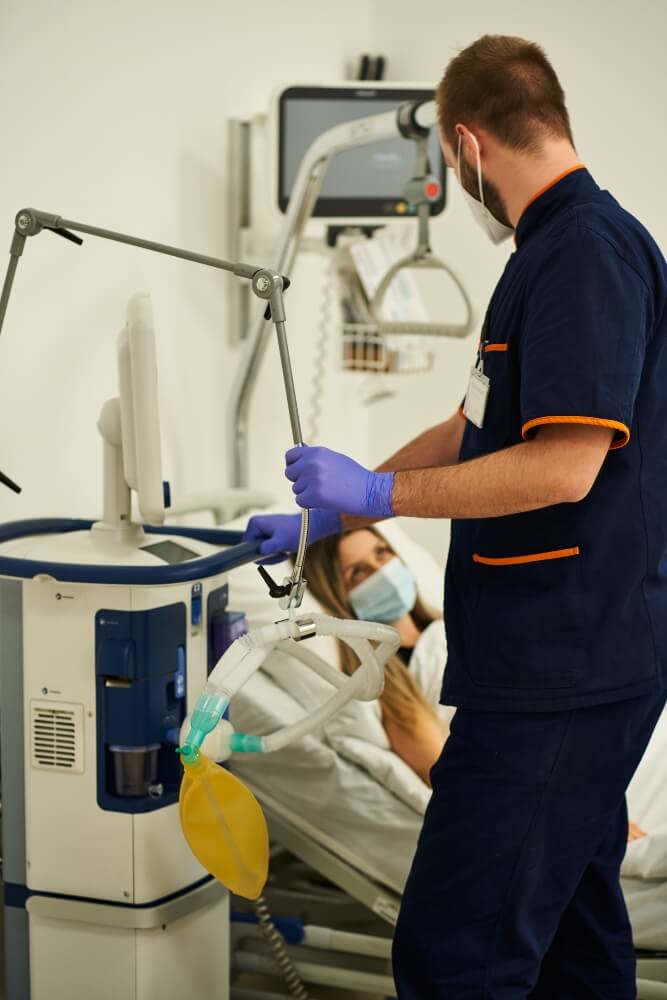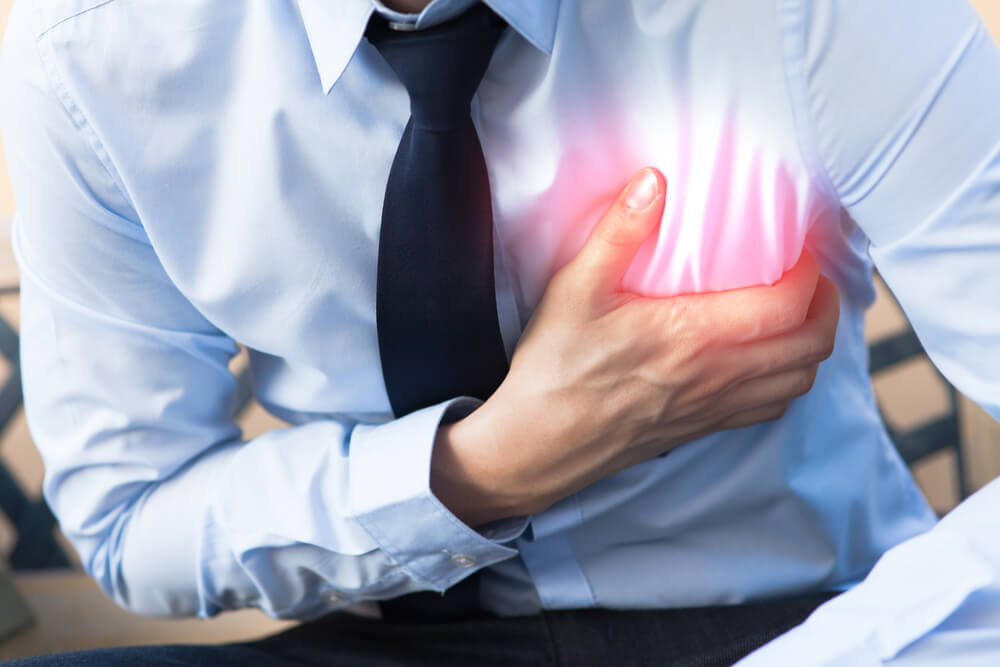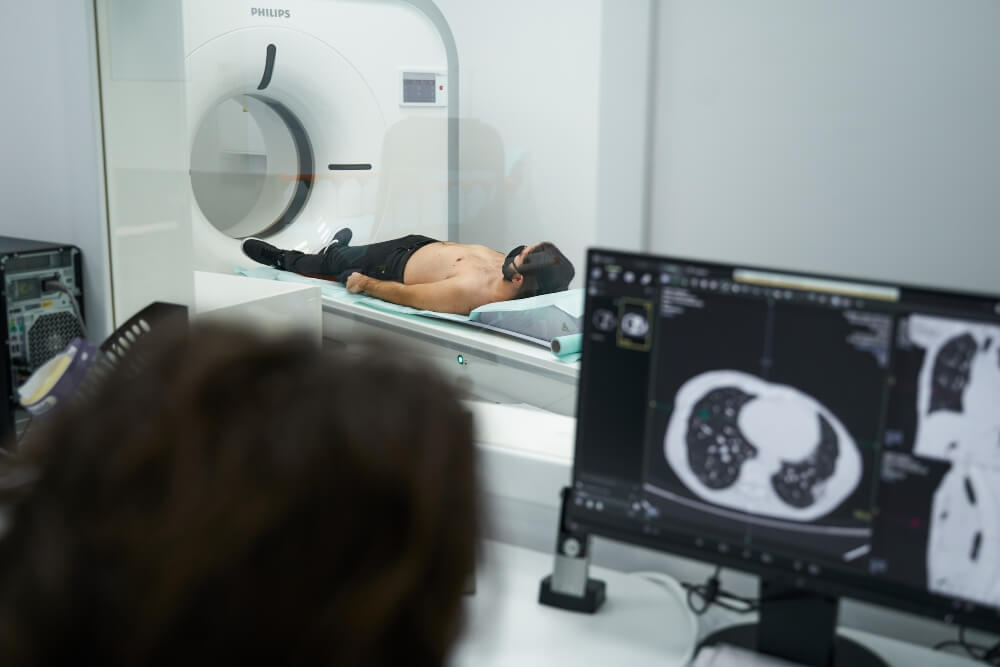Because of this enormous frequency of heart attacks, it is extremely important to perform preventive examinations with a cardiologist on time, and the best cardiologist in Belgrade and the best service are waiting for you at the Pulse Cardiology Center.
If you have not been so diligent in monitoring and controlling your health condition, and even if you are and you are aware that you are at risk of this problem, you need to know which signs of a heart attack can appear and when and how to react to them.
After all, not only for yourself, but also for the sake of your loved ones, you should know as much as possible about coronary diseases, their prevention, recognition when they develop and the dangers they carry.
Although it often seems that way, a heart attack does not occur suddenly! Coronary disease develops gradually in silence, and the first symptoms come very late, which is why only 3% of cases are detected in the early stages. When a heart attack occurs, the disease is already in full swing, but even then you should not give in, but fight it.
By recognizing the symptoms of a heart attack and calling a doctor immediately, we can save our lives or the lives of people close to us who are at risk! In addition, a timely reaction will significantly increase the possibility that the consequences after the impact will be less, and therefore the recovery will be easier!
Read the following lines carefully because the information you receive may one day be of vital importance to you.
Why does a heart attack occur?

How do I know if I’m at risk?
By going to preventive examinations and doing basic laboratory analyzes as part of the examination, we will get from the cardiologist a fairly clear picture of how endangered we are and what is the probability of developing coronary disease and heart attack as a consequence of coronary disease.
Cardiovascular risk assessment, preventive and diagnostic examinations can be done with us, and your appointment is only one call away. We are always available and organized so there are no long waiting lists.
We’ll help you decide if you need an exam and what kind of exam is best for you and your situation. If you recognize yourself in the following factors, give us a call.
The following factors influence the probability of developing coronary heart disease and heart attack:
Genetics
If we have members in the family who have developed coronary disease, it is more likely that we too will get sick at some point in our life.
Gender
The monitoring of statistical data so far has shown that men are a more vulnerable category, and even age is not a mitigating circumstance, because it is more likely that a heart attack will happen to a younger man than to a younger woman.
Therefore, men have a greater possibility of developing these problems earlier. Of course, this does not mean that women are in a much better position, because heart attacks are common among them as well.
Age
Age significantly increases the chances of developing this disease. Unfortunately, this does not mean that coronary heart disease and heart attacks do not happen to younger people. The largest number of registered patients are between 30 and 70 years old, and lately there are more and more twenty-year-olds in this statistic. So, the older you are, the greater the danger, but already in the earlier years you should think about your heart and start with regular check-ups.
Lifestyle
Perhaps, the development of these problems is most influenced by the way we eat and the way we manage our lives. A diet full of bad cholesterol, sugar and fat, obesity, smoking, alcohol consumption are the paths that lead to health problems. In addition, passivity is a big problem of modern man. A combination of poor diet, bad habits and lack of physical activity can do nothing good for the heart.
What is encouraging is the fact that if we take care of these things, the chance of living a healthy and carefree old age is high.
What are the early symptoms of a heart attack?

Very often, even in 50% of cases, early symptoms will appear before the heart attack, which should not be ignored. Responding to them and going to the doctor immediately saves life! Often, these symptoms are not very pronounced, and even if they worry us, there is a probability that we will wait a little longer to see if they pass and in this way precious time is wasted.
How long before the heart attack will occur depends on the person. Some patients testified about the signs they noticed a month before the heart attack.
The most common early symptoms include:
- occasional chest pains of mild intensity
- pains in the area of the neck, shoulders, jaw
- sweating for no reason
- nausea and vomiting
- feeling faint and dizzy
- lack of air
- expressed anxiety
- confusion
Heart attack has been the subject of research by the greatest experts for a very long time and very intensively. It was analyzed in such detail that there are also conclusions which symptoms are more pronounced in men and which in women.
In addition, the methods of treatment are more numerous, less invasive and more effective, but it is still crucial how quickly you see a doctor.
It is widely believed that severe, unbearable pain is a sign of a heart attack, and then if a person does not feel it, he believes that something else is at stake. Not everything is so simple, the opinion that only this symptom is a sign of this problem has long been overcome. The spectrum of signs is wide, some are not even so pronounced or can lead us to think that something else is involved.
If you recognize any of the above signs, it is better to see a doctor. Even if it turns out to be a false alarm and there was no heart attack, it’s better to spend some time monitoring your heart health than not reacting and suffer major consequences.
Heart attack symptoms in women
- severe pressure or pain in the chest, which may be centralized or spread to the left arm
- unprovoked feeling of tiredness that can last for several days
- severe fatigue that occurs suddenly
- sleep problems
- anxious feeling
- problems with digestion or the appearance of pain that resembles the presence of gas in the digestive tract
- appearance of dizziness
- short breath
- pain in the upper back, shoulder or throat area
- pain in the jaw
- pain that goes into the neck
Heart attack symptoms in men
- severe, anginal chest pain
- the appearance of pressure in the chest, as if something very heavy sat on the chest, plus a feeling of tightness may occur (the tightness may disappear and return, it may be continuous)
- pain or discomfort in the upper body, which may spread to the arms, left shoulder, back, neck, jaw or stomach
- fast or irregular heartbeat
- an uneasy feeling in the stomach reminiscent of indigestion
- feeling of lack of air, breathing problems
- appearance of dizziness
- feeling faint
- breaking out in a cold sweat
When a heart attack occurs, only a professional can provide life-saving help and it is necessary to call an ambulance as soon as possible and get to the hospital. Hospitals and cardiology centers have the equipment needed for interventions that will enable the re-establishment of normal blood flow and heart function. Specialists who are qualified to perform these interventions and for further treatment are waiting for you there.
Thanks to the Center for Chest Pain, which we created in order to respond as quickly and efficiently as possible when patients with this problem come to us, you can get the fastest and most effective help from us. Call Pulse Cardiology Center.





